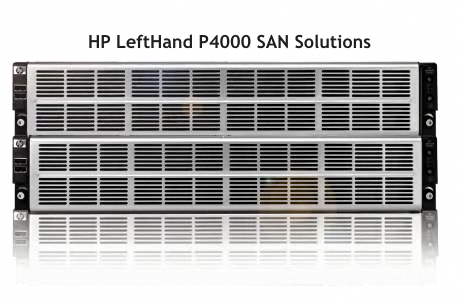 “Statistically 2/3’s of all businesses fail, and I am one that has started over 12 businesses can say this statistic is true”, says in his interview with B10WH Jay Kramer who has run a few quite successful web hosting enterprises in his career. He is web hosting business since 1996, at the time when we used to use dial-up Internet access. Jay who now serves as a CEO of the wholesale data center service provider Colostore said something quite interesting about the popular web hosting automation provider cPanel.
“Statistically 2/3’s of all businesses fail, and I am one that has started over 12 businesses can say this statistic is true”, says in his interview with B10WH Jay Kramer who has run a few quite successful web hosting enterprises in his career. He is web hosting business since 1996, at the time when we used to use dial-up Internet access. Jay who now serves as a CEO of the wholesale data center service provider Colostore said something quite interesting about the popular web hosting automation provider cPanel.
“cPanel was not really a software package that was developed for the web hosting industry it was a software package that was written within the hosting business and was developed by people who did hosting tech support and had good reason to solve hosting issues”, explained Mr. Kramer. Read the whole interview below.
Hi Jay, I know you for almost 6 year, from the time I was CEO of Host Color. I found your company when I needed to find a data center solution. Now I’m please to do this interview with you for B10WH.com. Tell me how do you get into web hosting business?
We got into doing web hosting mainly from our client that came to us for Internet access which was back in 1996, since we were the only people in the Internet business in the local area we were naturally the choice to ask about hosting, and we originally offered it as a added benefit to out customers. Later we did get into it more heavily when the dial-up business began to get displaced by DSL and cable modems.
You said “we”. Who are the others?
The others are partners we had in the business originally it was family members, then when we got into web hosting only it included some friends. The first company was called “Simply Internet” then we sold it and bought a web hosting company called “Powersurge” which started “Fastservers” and then eventually got bought out by Layeredtech.
You keep using “we” form. I thought it was you and another one… or you were a team of professionals? I’m asking this because it is interesting how different people get into business – alone or with a number of business partners?
Yes, I suppose it is interesting to look at the evolution of how people flow in and out of business, let me see if I can clarify. The first business Simply Internet was Myself and 3 other family members, when we went to Powersurge / Fastservers we added in two partners and then we sold Powersurge/Fastservers and started Colostore with the original family group.
You have been in this business for almost 15 years. Since then the things changed a lot from a technical perspective. Tell me about web hosting in 1998, what did web hosting customers need to use at that time? There were no advanced hosting automation systems 11 years ago…?
In 1998 most of the website needs were mainly static sites with some CGI’s inserted here and there, an admin could easily pile on a server 300 to 400 sites and keep it running well, assuming mail was on another server. Hosting automation was really in its infancy at that time, although cPanel was around and we used it back when cPanel was based out of Burst.net (although not a part of).
We did have to create our own scripting and control panels to help with automating tech support, we did have scripts on the windows side to create websites and manage accounts. We also have created special control panels to manage email, mysql and mssql databases, backups and server monitoring.
I think cPanel was the first that we found the brought all the hosting automation together under one package. Although I believe Ensim was around at the time promising a winows solution, and we were one of the first companies to try out ensim as a control panel.
Why did cPanel become the most popular web hosting automation software in the industry?
I think mainly it was because of the response to the issues that kept coming up, I can remember seeing security issues popup with a Linux application and Nick would have a fix within several hours, for us it was really about that close relationship with the developers, cPanel was not really a software package that was developed for the web hosting industry it was a software package that was written within the hosting business and was developed by people who did hosting tech support and had good reason to solve hosting issues.
Hmm, this is quite interesting. Now tell me about your web hosting enterprises. Which one is the most successful one?
The second business was probably the most successful, when we took over Powersurge we were able to double the size in a year and had over 100K domains hosted, it was really quite a business to run, however hosting alone was not what we really wanted to do indefinitely, in my personal opinion Colostore although not as many accounts as the previous businesses is by far more successful. Measuring success is a interesting topic, when I was younger success was measured how many dollars you brought in, when I got older success is now measured in the amount of free time I can give to my family and business stability (important in this economy).
If you are about to provide consulting services to someone who wants to create a web hosting business what would you tell them if they ask you how to position the new company? Is it more profitable to target a individuals and/or small businesses, or it is much better to deal with those who need Dedicated / Managed Hosting or any customization on an enterprise level?
I think if someone is new to the business and wants to get into a web hosting type of business, definitely start with reselling, statistically 2/3’s of all businesses fail, and I am one that has started over 12 businesses can say this statistic is true. When you start a business make sure you develope relationships with paying customers first and dont dig financial holes right away. Once you get your paying ralationships stable and steady you can then think about integrating up the food chain by buying into servers and infrastructure. But, always look at getting cash in the door first and build a pay as you go model, pricing in the hosting business has always been a moving target.
On the question of if its more profitable to target individuals or small businesses I would lean more toward small businesses, usually businesses are budgeted and do not seem to have as many cash flow issues as individuals do, also they tend to be more the 9 to 5’ers, so tech support does not get to crazy in the off hours.
Would advice anyone to start Reselling a hosting services provided from a Cloud computing class infrastructure or you’d tell them to start with good old rack-mountable servers?
Thats a difficult question because the definition of Cloud Hosting changes like the weather from person to person, my definition of Cloud Computing is simply a site or service that has a simple front-end point of access, and on the back-end has redundant geographic diverse servers. The minimum to implement this would be to get a few servers, put them in different datacenters and do some dynamic DNS with failover.
I think if your starting out wanting to do some cloud computing, you are at the choice of building your own flavor of clouc computing, or waiting to see which solution starts to become viable. Right now cold computing is a huge buzzword without any concrete definition.
Yes, it is true. But there are still a huge different between Cloud based infrastructure and traditional computing… as far as there is such thing like “traditional computing”…?
Well I think the jury is still out on the Cloud computing definition, however traditional web hosting from my perspective has changed quite a bit over the years, I think traditional hosting/computing would be defined as a provider hosting DNS/Email/Web on the same server, there are quite a number or variations on this, but when you really look at the packages that people offer on the web, mostly the $4.95 unlimited everything plans, it ends up being just another account on a cPanel box somewhere.
Do you accept the concept as selling “unlimited” to people who don’t now much of how does the Internet, websites and web hosting in particular work?
This has always been a thorn of arguement across the hosting industry and people seem to always have their opinion about it, from what I have seen and done early on, is that the term unlimited is simply a marketing term that hides limitation on a site, if someone signs up for a unlimited account and they use too many resources they will simply find their accounts dropped. To me it really is just a way to bring in lots of clients and sort out the ones you want to keep.
Do you have many friends who know that you do something related with computers and always ask you to “how to fix” something questions?
Lol, yes, yes and yes, the tech support curse has followed be around for years, however I am about to pull off the holy-grail of tech support technicians, I have almost got my family and friends to call up our tech support guys instead of calling me.
Tell me now have you ever thought of leaving this industry and to get down to any other business that does now require 12 hours to stay connected with your clients?
I think every day, although I would be happy just to be attached to the business for 12 hours, for me it is truely 24 hours, I dream of the day of turning my cell phone into a skipping stone. Although I don’t know what other business I would go into, the hosting business has been very good to me and I actually do enjoy it quite a bit.
Now last question. It is always about to make hard choices. You should either grow and grow and grow further or to sell and get down to something else. Has the web hosting become a traditional business, something that would become a family business for a few generations, the way hotel business is?
The interesting problem with growing is that usually companies always grow to levels of incompetantcies, meaning they always grow to the point that can be managed by the current management. In this case if someone has a hosting business that is growing and growing, you are given a choice to usually either sell out or get some professional management.
I cant really say web hosting is a traditional business, I do have quite a bit of experience in selling hosting businesses and evaluations usually seem to be based on revenue multiples and account values, unlike traditional businesses where the evaluation may be done on a discounted cash flow basis.
